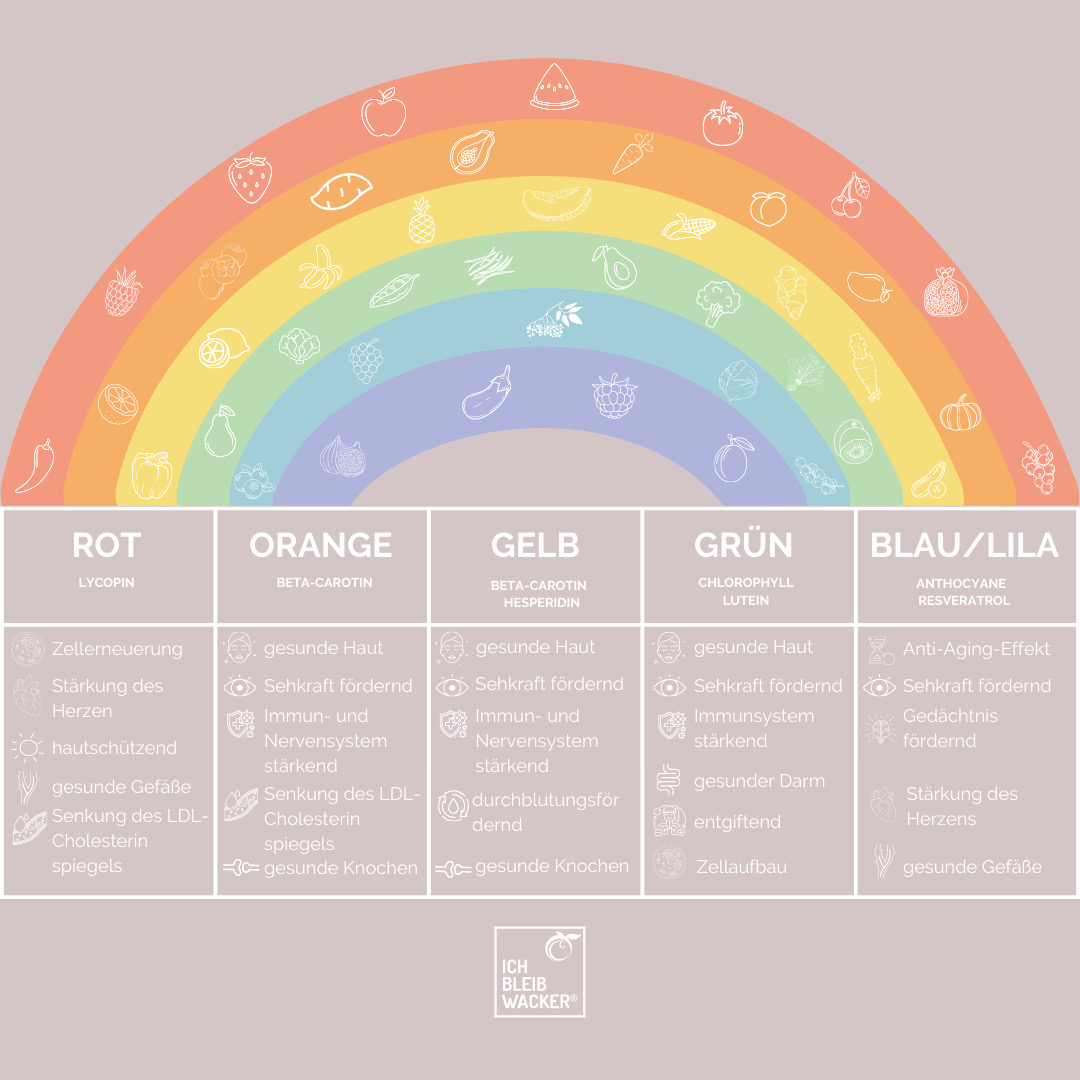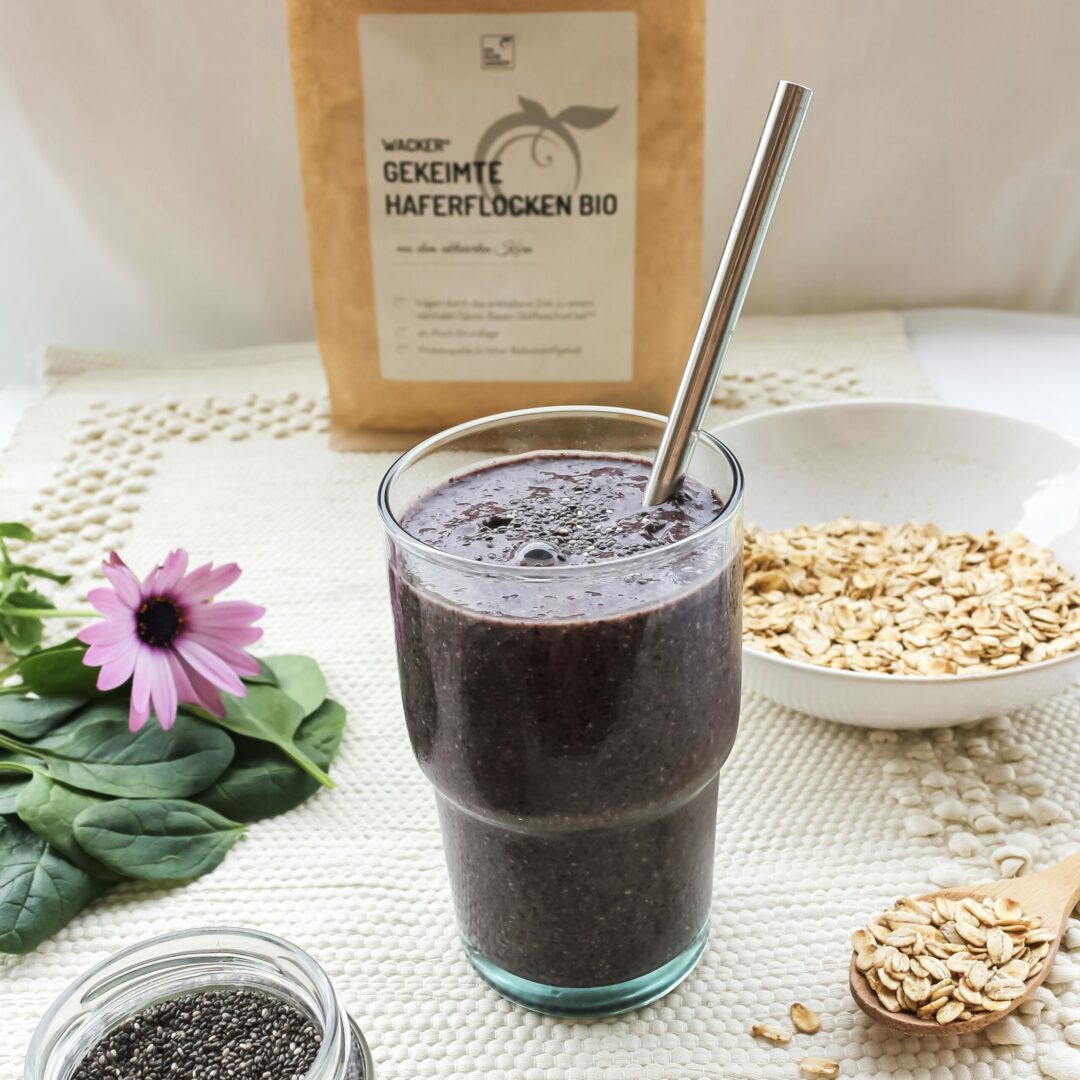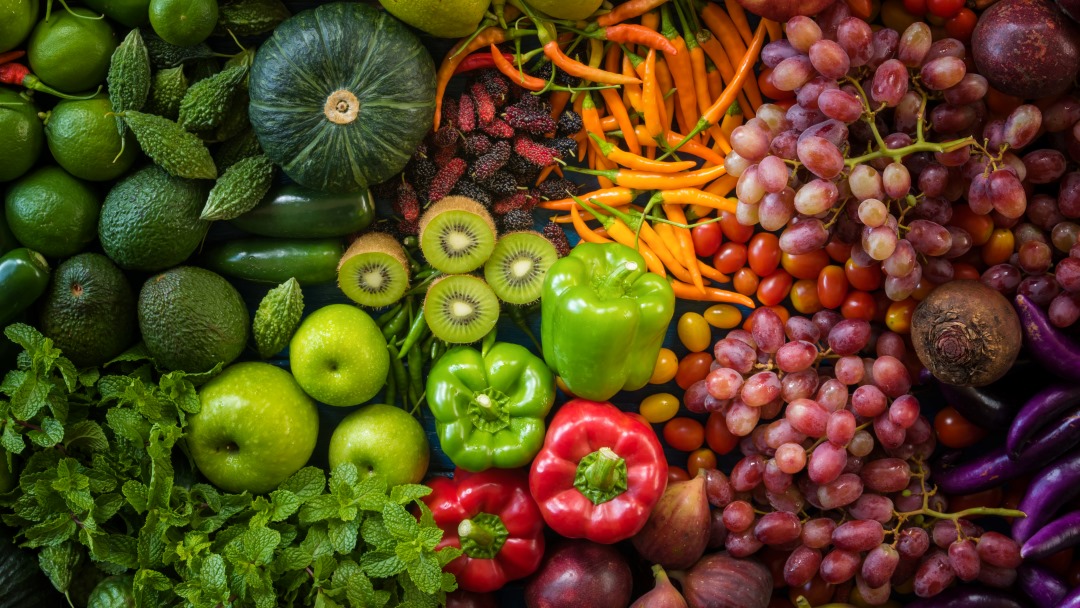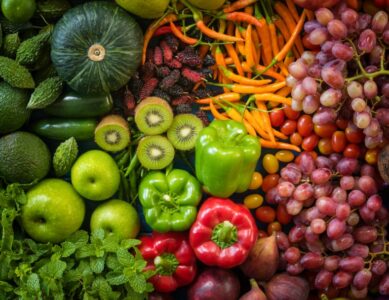Vegetables and fruit are just not your "thing", don't taste good or you just don't know what to do with them? Or maybe you have the feeling that you always fall into a culinary routine and are stuck with the same five dishes.
That's over now! We have 7 tips for you on how to become and stay a fruit and vegetable lover without much effort.
The rule of thumb - 5 portions per day
The German Nutrition Society (DGE) recommends eating five portions of fruit and vegetables per day. However, this recommendation is also supported by numerous studies that confirm the benefits of a healthy diet.
The five portions per day are divided as follows:
three portions of vegetables - at least 400 grams
two portions of fruit - maximum 250 grams
Many people find it easier to eat fruit. But even if five portions of fruit a day are better than nothing fresh at all, the ratio of portions a day should clearly be in favour of vegetables. Apart from that, care should also be taken that the same fruit and vegetables do not always end up on the plate. Variety is also important here, as each vegetable and fruit contains different nutrients for our body.
Our tip: Eat a rainbow every day. How does that work and what does it mean? Have a look here: Rainbow diet: Why you should eat a rainbow every day! - Wacker Stories (bleibwacker.com)

This is why vegetables are so important
It is no secret that vegetables are healthy. Specifically for the following reasons:
- Nutrient richness: Vegetables are a natural treasure trove of essential nutrients such as vitamins (e.g. vitamin C, A, K), minerals (e.g. potassium, magnesium) and fibre. These nutrients support important bodily functions, strengthen the immune system, promote digestion and contribute to general well-being.
- Antioxidants: Many vegetables are rich in antioxidants, which can protect cells from oxidative stress and free radicals. They play a significant role in the prevention of chronic diseases and support skin health.
- Fibre for digestion: Vegetables are an excellent source of fibre, which regulates digestion and promotes intestinal health. A diet rich in fibre can prevent constipation and reduce the risk of intestinal diseases.
- Few calories, lots of satiety: Vegetables usually have a low calorie content, as they consist mainly of water. Nevertheless, they are filling because of the fibre and other nutrients, which helps to maintain a healthy body weight.
- Long-term health: A balanced diet with plenty of vegetables is associated with a reduced risk of cardiovascular disease, type 2 diabetes, certain cancers and other chronic diseases. Long-term vegetable intake can thus play an important role in maintaining health and quality of life.
In theory, fruit also has all these advantages, but at the same time it contains a lot of fructose. Although this is not dangerous, it should be consumed in moderation.
Tips for more fruit and vegetables in everyday life: It must taste good
They simply exist - vegetables and/or fruits that you just don't like. Whether beetroot, Brussels sprouts or figs. You just can't make friends with some things. Honestly? Then just leave them out. Because if you don't enjoy something or don't like it, you won't integrate it into your diet in the long term.
- Of course, there are always ways of preparing the "hate vegetables" or "hate fruits" that taste good after all. If you have discovered something for yourself, great! But if that's not the case, don't obsessively try to convince yourself of the taste. After all, healthy eating should also be a bit of fun.
- Pimping the sandwich: Fancy a cheese sandwich? No problem. For the necessary portion of vegetables, simply add a few strips of peppers, cucumber or tomato slices.
- Or even better: instead of butter, you can put a vegetable spread on the bread. There is now plenty of choice, just as there is here. Whether Beetroot-apple, A-La-Tuscany or classic Tomato-herbs. You can use our creams as a spread or dip:

Order the tasting pack of creams now to pimp your breads!
- Cook and eat together: Cooking and eating together with friends is not only more fun, but usually tastes much better 😊 Apart from that, you can inspire each other, learn from each other, try out new recipes and ideas and simply have fun together.
- Hide vegetables: Vegetables can be wonderfully hidden in soups and sauces - so even vegetable refusers and children eat healthy food. Whether Broccoli soup or Tomato sauce - Here you can simply throw together fresh ingredients, puree and cook. Or you can save yourself the trouble of buying the fresh ingredients and get the soups at the local supermarket. bleibwacker.com. You can even enjoy them cold. To make it not only taste homemade but also look like it, you can add a few herbs and decorate it.
- Buy fruit and vegetables every time you go to the supermarket: Fruit and vegetables can only be eaten if they are available in the fridge - so the rule of always taking something fresh with you when you go shopping can be very helpful. To limit the consumption of unhealthy foods such as sweets, the rule can be tightened: For each luxury food, take two fresh foods with you when shopping.
- Smoothies and juices: Smoothies and juices can be created and combined according to your preferences. The great thing about them is that you can conjure up a whole new taste experience just by changing an ingredient. Apart from that, they are quick and easy to prepare and perfect for breakfast or as a snack "to go". To keep blood sugar levels from spiking too high, the amount of vegetables in the smoothie can be increased according to taste preference: Avocado, carrot, spinach or beetroot are particularly suitable here. Why not try this delicious High Protein Berry Shake off:

Click here for the recipe!
Image Colourful fruit and vegetables: Adobe Stock, peangdao, #295817910




